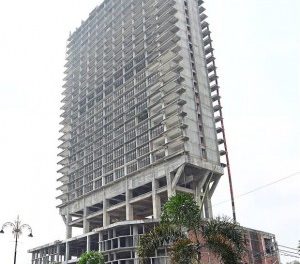Klang Valley to enter Phase 3 of National Recovery Plan from Oct 1
Prime Minister Datuk Seri Ismail Sabri Yaakob has announced that Selangor, Kuala Lumpur and Putrajaya will move to Phase Three under the National Recovery Plan starting October 1. He also announced that Melaka will move to Phase Three from Two, and Kedah to Phase Two from One — which means there are no more states in Phase One. Among the activities allowed for the respective phases are official government and private events, the resumption of the skills training sector and spectators at sports matches in stadiums. Individuals who have not been vaccinated must undergo a pre-event test using a self-test kit prior to the event. The government has also decided to allow spectators/supporters at sports venues and recreational facilities in Phase Two, Three and Four states. However, children under the age of 18 are not allowed into these venues. (Malay Mail)
BNM: House prices not expected to fall significantly as homebuyers’ demand still strong
The prices of houses in Malaysia will likely not drop significantly, due to continued demand from first-time buyers for affordable housing and as developers roll out more affordably-priced projects, Bank Negara Malaysia (BNM) said. In its Financial Stability Review for 1H21, BNM observed that the number of transactions or houses bought had decreased this year. It highlighted that market activity from April to June was weighed down by tighter movement restrictions and operational frictions after Covid-19 cases surged. However, it also noted that the housing market’s observers expect activity to pick up with the gradual easing of movement restrictions and recovery in economic activities, as seen previously in the second half of 2020. With developers expected to offer new housing with more affordable prices and continued demand from those purchasing their first home, BNM said there would be reduced risks of significant drop in housing prices. “Along with sustained demand among first-time house buyers, this is expected to mitigate risks of a significant house price correction,” BNM said. BNM had also noted that demand for housing loans has now recovered to above pre-Covid-19 pandemic levels. (Malay Mail)
Most Malaysian borrowers have enough financial cushion, 1.9% likely to be most distressed
Many Malaysian households, especially in the middle- and high-income categories, appear able to still take on new loans for purposes such as buying houses and cars, Bank Negara Malaysia (BNM) said. In a report, the central bank noted that most household borrowers in Malaysia remained resilient, while those that face higher levels of financial stress could access additional buffers through policy support measures. As of the end of June this year, household debt growth in the country had expanded by 5.5% over the same period last year, as more borrowers resumed paying their loans again after exiting from the loan moratorium. BNM estimated that there would be a much smaller share of borrowers (1.9%) who are “most at risk” as they are more likely to deplete or use up all their cash or deposit buffers, with borrowers earning less than RM5,000 monthly being the most vulnerable. (Malay Mail)
Offices, malls may turn emptier with shift to e-commerce, flexi-work arrangements
More and more space in Malaysia’s offices and shopping malls may be left unoccupied, while rental prices for such commercial properties may also go down due to the impact of the Covid-19 pandemic, Bank Negara Malaysia (BNM) suggested. This would be due to changes such as consumers opting to shop online instead. It noted that occupancy rates and rental rates for shopping complexes and office space have continued to fall. BNM noted that vacancy rates had increased across all key states in Malaysia as several commercial property developments were completed amid “persistent weak demand”. “Looking ahead, vacancy rates could continue to rise and place further pressure on rents as a result of structural changes brought about by the pandemic, including flexible working arrangements and a shift in consumer spending patterns towards e-commerce,” BNM added. (Malay Mail)
Govt mulls ‘opt-out’ alternative for Covid-19 vaccine
The government is considering the ‘opt-out’ alternative for individuals who do not wish to receive Covid-19 vaccine. Health Minister Khairy Jamaluddin said if implemented, those who chose not to be inoculated against the virus would not be able to enjoy some facilities and services allowed to the fully-vaccinated people. “The ministry was also considering plan to implement mandatory vaccination in certain sectors like health, security, education and services, by exercising provisions under the Occupational Safety and Health and 1994.” He said the ministry was also mulling compulsory full vaccination as a requirement for individuals to allow them to use facilities in selected places and participate in social activities. On vaccine reception, he said a study in April showed that only 5% of Malaysians refused to be vaccinated for Covid-19. (NST Online)





